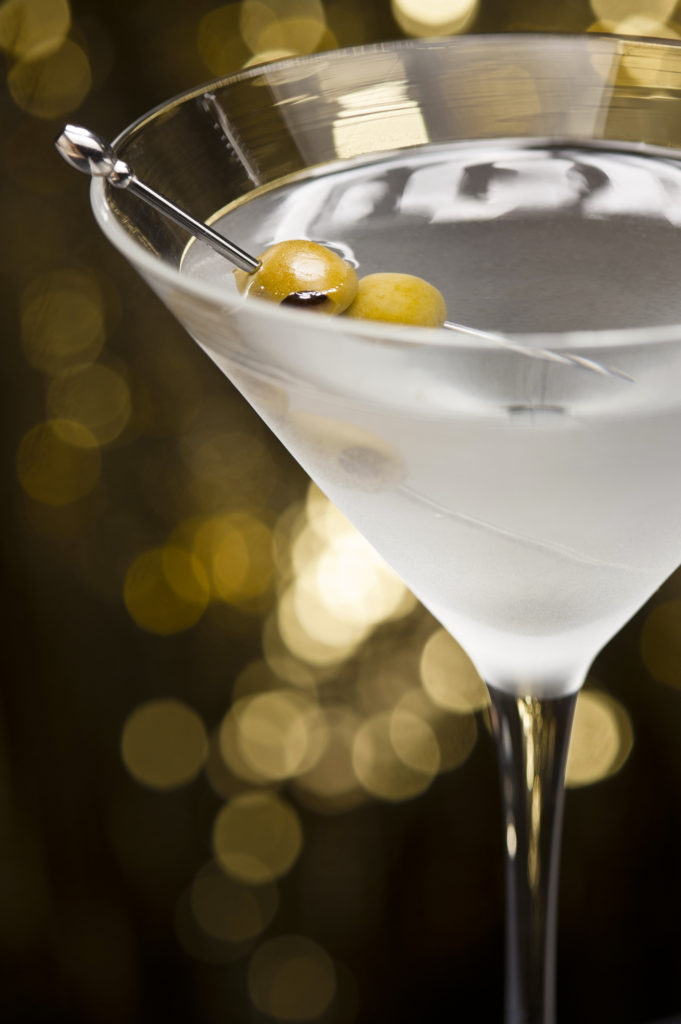Derek Brown writes about drinks for outlets like the Atlantic and The Washington Post. He also runs a slew of celebrated bars, including The Columbia Room. GQ once said the place makes the best Martini in America, which was not at all why Brendan and Rico happened to stop by the day after he made us a custom history cocktail for our live show in the nation’s capital.
Anyway, as Martini lovers, Brendan and Rico were dazzled by Derek’s knowledge of Martini lore, and by his version of the drink… which is not at all what we expected. So after the show, Rico interviewed with him exclusively about Martinis. Check out a few pieces of trivia Derek had to share.
When and where was the Martini created?

Derek Brown: It’s one of the most amazing things about the Martini, is it’s still obscured by history. We could point to a couple different theories about an Italian guy or Martini and Rossi vermouth, but none of them are proven in any way.
The one that I like the most… turns out that sometime in the 1890s is the when the Martini shows up. In 1867 — I think it’s about ’67 — is when the Manhattan is first kind of in existence.
And then, somewhere in-between, there is the missing link, and that is the Martinez. The Martinez is mentioned in an O.H. Byron book as being, essentially, a Manhattan in which you replace the rye with gin, and all of a sudden, you have a Martinez. And it’s very common for bartenders to sub one spirit out for another and create a different drink. That’s part of our creative process.
And so, it makes a lot of sense to me that the Manhattan became the Martinez became the Martini, which then was using sweet vermouth and potentially a sweetened gin like Old Tom gin, and then became the dry Martini using dry gin and dry vermouth with orange bitters as well. That’s kind of become this thing that people leave out.
Why the Martini is “The King of Cocktails”
I, personally, think the Manhattan’s an OK drink. I like it, but the Martini, to me, is the king of cocktails.
One of the reasons why is because it really is such a reflection of who we are as humanity. There are these savage elements to the dry Martini. The gin: the juniper goes back to some ancient people who lived by these juniper forests and used it for sustenance and medicinal reasons, and infuse it into their lumpy beer or whatever they did.
And then, you have this very clean, crisp drink that reminds you of jazz and skyscrapers and modernity, and so, it has this juxtaposition of savagery and civilization.
What goes in to the perfect Martini… according to Derek
It’s very easy. It’s almost easier than any other drink in that regard. It’s 50/50: 50 percent gin, 50 percent vermouth. We use one and a half ounces of gin and one and half ounces of vermouth.
Why so much Vermouth?
I do think the reason why people started dumping the vermouth is because it’s the least alcoholic part of it, right? It has the lowest ABV, or proof, to it. When you’re talking about Churchill or Hemingway, who are notorious — Hemingway had his 15:1 Martini which he called “The Montgomery,” which was named after Field Marshall Montgomery because he said those were the odds that he preferred before he went into battle.
Then you have Churchill just waving the bottle and saluting France or whatever. I mean, they are great men in many ways, but they are not examples of the best types of drinkers. They drank way too much, and they’d prefer the alcohol. Now, I like to drink, too, so I don’t want to totally knock them down, but to me, the vermouth is a civilizing agent.
Why Derek serves his Martinis with olives on the side
First of all, why waste the space in the drink itself by adding olives? That’s the first thing. And the second part of it is that, usually, people don’t chill them, and so you’re throwing a little heat bomb into the drink when the drink should be icy cold.


